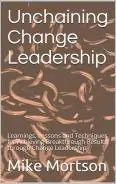
Our fundamental objective at Supply Chain Game Changer is to share experiences and expertise and lessons learned. As such we have focussed on curating a wide range of content and resources that will have relevance to anyone at anytime no matter what their needs may be.
We began our Seasoned Leadership in Action™ Interview series in support of our objective to share experiences and expertise. And hearing from Industry leaders in this interview format has proven to be incredibly popular. People want to hear about the experiences of others and lessons learned from those who have been successful in their fields.
With many of these Seasoned Leadership in Action™ Interviews now published we thought it would be valuable to extract excerpts from these interviews along themes, starting with lessons learned.
As such we are presenting our first compilation of excerpts from these interviews which is focussed on Lessons Learned by these leaders throughout their careers.
Enjoy and look for nuggets of wisdom in these lessons learned.
Continue reading “Seasoned Leadership in Action™ Interview Excerpts: Lessons Learned by Global Leaders”















